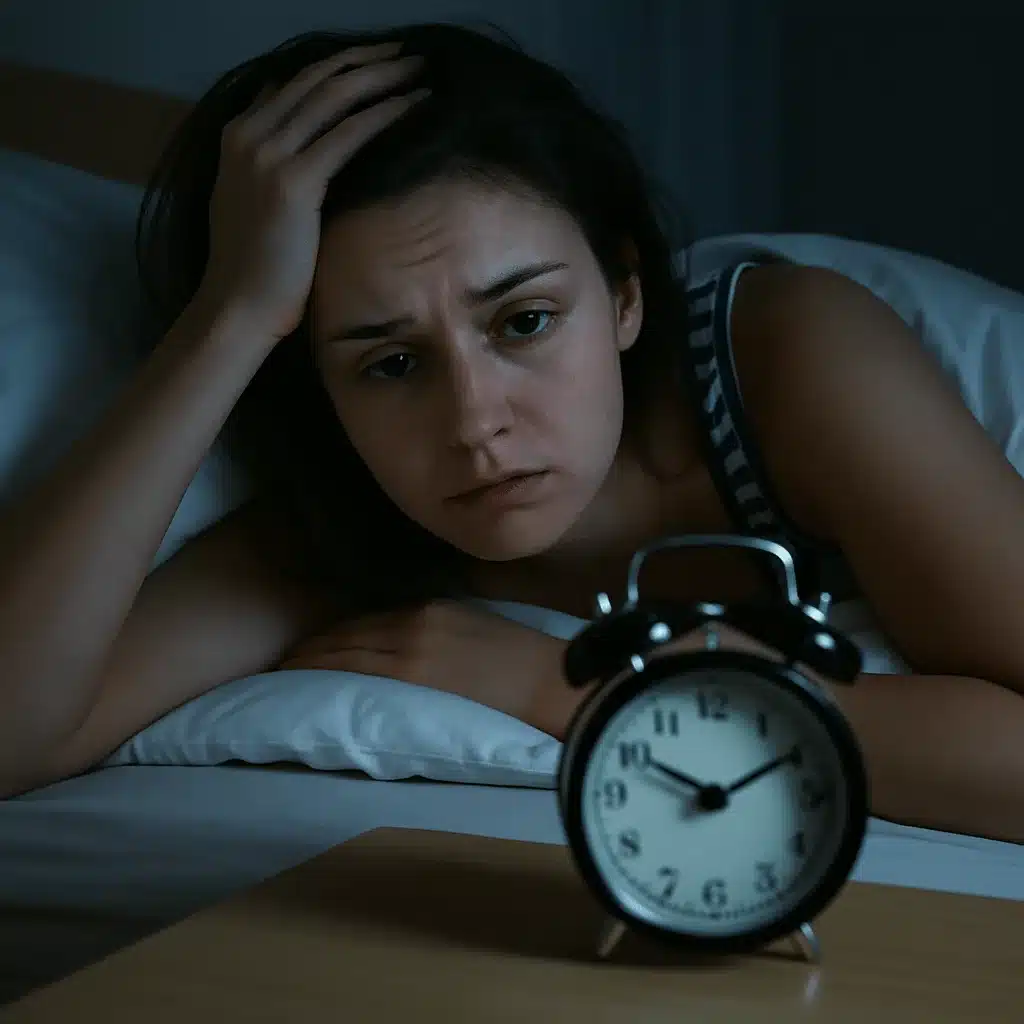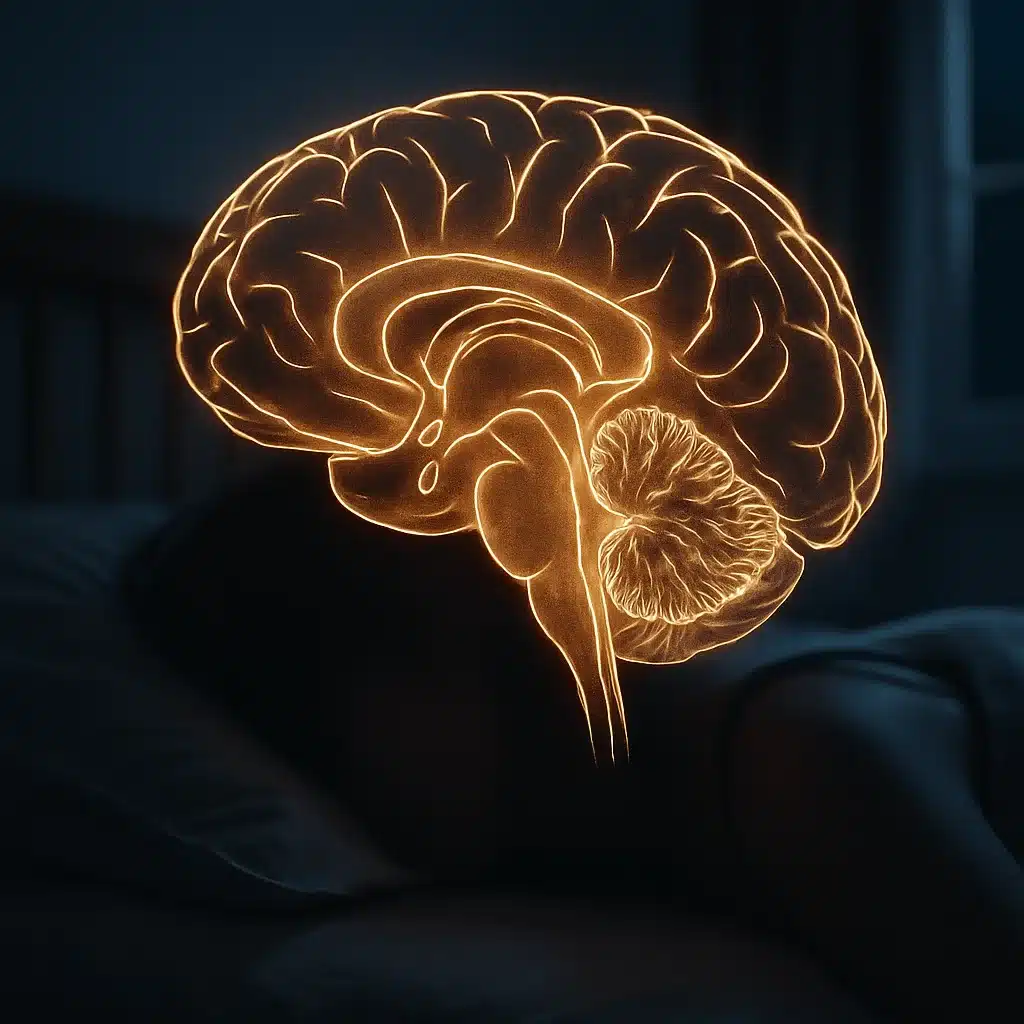Zepbound Insomnia is one of the most overlooked side effects of this popular weight loss injection. For Brooklyn, a mom of two and founder of Easy Protein Kitchen, everything seemed to be going great—until she found herself wide awake at 3 a.m., night after night. “The weight was dropping fast, but my sleep was all over the place,” she said.

As more people share similar experiences, Zepbound Insomnia is now becoming a growing concern. This article explores what causes it, how Zepbound might interfere with sleep, and what users can do to find relief. From comparing it with Wellbutrin and Semaglutide to offering natural remedies, we’ll help you regain your rest without derailing your weight loss.
Don’t miss our Natural Zepbound Recipe a gentle and holistic complement to your weight loss routine.
Table of Contents
Table of Contents
Understanding Zepbound Insomnia and Its Role in Weight Loss
What Is Zepbound and How Does It Work?
Zepbound is a weekly injectable medication that mimics GLP-1 and GIP hormones to suppress appetite, slow digestion, and promote weight loss. Initially designed to manage type 2 diabetes, it’s now widely used for obesity and chronic weight management.
By helping users feel full longer and eat less, Zepbound delivers impressive results. However, the same hormonal shifts that regulate hunger may also disturb sleep patterns for some.
Clinical Uses and Popularity of Zepbound in the U.S.
Since gaining FDA approval for weight loss, Zepbound has become a staple in medical weight management programs. It’s prescribed to adults with a BMI of 30+, or 27+ with health conditions like high blood pressure.
Its popularity is growing fast, but users are starting to report an unexpected side effect: insomnia. Unlike nausea or fatigue, Zepbound-related sleep issues can creep in slowly—making them harder to recognize and manage.
What Is Zepbound Insomnia?
Defining Zepbound Insomnia: How the Drug Affects Sleep Cycles
Zepbound Insomnia refers to sleep disturbances that users experience after starting Zepbound, a GLP-1 and GIP receptor agonist. While this medication is highly effective for weight loss, it may unintentionally disrupt your natural sleep cycle. Some users report trouble falling asleep, waking frequently during the night, or feeling restless even after sleeping for hours.
Though not listed as a primary side effect in clinical trials, many users report sleep issues within weeks of starting Zepbound. This raises the question: is Zepbound directly causing these changes—or triggering something else?
The likely cause is hormonal. Zepbound mimics GLP-1 and GIP to control appetite, but these same hormones can also influence cortisol, insulin, and serotonin—all essential for healthy sleep.
Comparing “Zepbound and Insomnia” to Other Drug-Related Sleep Disruptions
To understand how Zepbound and insomnia relate, it’s helpful to compare with other medications known for affecting sleep. For example, Wellbutrin, a common antidepressant, is known for causing insomnia due to its stimulant-like effects on the brain. Similarly, Semaglutide, another GLP-1 agonist, has been loosely associated with poor sleep in some users, though not as commonly.
What sets Zepbound insomnia apart is its unique dual-hormone mechanism. It doesn’t just mimic one hunger hormone—it targets two. This increases metabolic activity, even at night, which might make it harder for your body to wind down. Add in factors like dietary changes, caffeine use, or increased physical activity, and you’ve got a recipe for disrupted sleep.
The Science Behind Zepbound-Induced Sleep Problems

Hormonal Changes, Appetite Suppression, and Sleep
Zepbound affects hunger hormones like GLP-1 and GIP, which regulate appetite—but also play a role in sleep. As appetite drops and blood sugar shifts, your natural sleep-wake cycle can be disrupted.
Lower calorie intake may reduce melatonin production, especially if your diet lacks carbs or key nutrients. As a result, your body struggles to wind down, leading to lighter sleep and trouble staying asleep. That’s the core of Zepbound insomnia—a hormonal and metabolic shift that impacts your nervous system.
The Role of Dopamine and Brain Stimulation
Another factor behind Zepbound and insomnia may be increased dopamine activity. Although Zepbound doesn’t directly target the brain like stimulants do, weight loss and hormonal changes can increase dopamine sensitivity. This can lead to heightened alertness, restlessness, or mental “overdrive” in the evening—making it tough to calm down.
Increased dopamine signaling is also why some users report more vivid dreams or waking up during REM cycles. Combine that with lower blood sugar at night, and your brain may remain more active than it should be during rest periods.
This mechanism is similar to how Wellbutrin causes insomnia, but with Zepbound, it’s more indirect. Still, the result feels the same: tired days, wired nights.
Common Symptoms of Insomnia Caused by Zepbound
Trouble Falling Asleep or Staying Asleep
The most reported symptom of Zepbound insomnia is difficulty falling asleep. Many users describe lying awake for hours after bedtime, even when feeling physically tired. Others fall asleep easily but wake up repeatedly during the night, often unable to return to sleep. This fragmented rest can make even a full eight hours feel unrefreshing.
Sleep issues often start within the first month of treatment. Hormonal and glucose shifts can leave the brain more alert at night. Over time, the frustration of not sleeping can turn into a cycle of anxiety and restlessness.
Physical and Cognitive Effects of Sleep Deprivation
If Zepbound is interfering with your sleep, the effects often show up fast. Daytime symptoms may include:
- Low energy or fatigue
- Brain fog and trouble concentrating
- Mood swings or increased irritability
- Heightened cravings for sugar or carbs
- Slower recovery from workouts
Some users report Zepbound sulfur burps, a digestive issue that can cause nighttime discomfort or nausea. Along with Zepbound insomnia, these symptoms disrupt sleep and may raise cortisol, stall fat loss, and reduce insulin sensitivity—undermining your progress.
Zepbound vs. Wellbutrin and Semaglutide: Sleep Disruption Comparison
Does Semaglutide Cause Insomnia Too?
Semaglutide, found in Wegovy and Ozempic, is another GLP-1 receptor agonist used for weight loss. While not commonly flagged for sleep issues in trials, some users report lighter sleep or restlessness—especially early in treatment.
Like Zepbound, it alters appetite hormones and digestion, which can affect sleep patterns. However, Zepbound also targets GIP, possibly amplifying its impact. That’s why some users notice Zepbound insomnia more than with Semaglutide.
Can Too Much Wellbutrin Lead to Restlessness?
Wellbutrin is known for boosting energy, but it can also lead to insomnia and restlessness—especially at high doses. Its effects are tied to increased dopamine and norepinephrine, which stimulate the brain.
While Zepbound doesn’t directly act on the brain, both can leave you feeling wired at night. If you’re using both drugs together, the risk of poor sleep may increase.
Is Timing Everything? Morning vs. Night Dosing of Zepbound
Is It Better to Take Zepbound in the Morning or at Night?
One of the most common questions among users dealing with Zepbound insomnia is whether changing the time of day they take their dose can help. While Zepbound is only injected once a week, the time of day matters more than you’d think.
Most healthcare providers suggest taking Zepbound in the morning, since side effects like nausea or restlessness are easier to handle during the day. Evening doses may worsen sleep if you’re sensitive to hormonal shifts.
If sleep is already an issue, switching to a morning dose may help reduce disruptions. Just stay consistent—Zepbound works best with a regular schedule.
Real-User Experiences and Clinical Suggestions
Anecdotally, many users who switched their Zepbound dose from evening to morning noticed fewer sleep disturbances within a week or two. While not a guaranteed fix, adjusting dose timing is a low-risk strategy worth trying—especially before turning to sleep aids or other medications.
Clinicians often recommend morning dosing to align with natural cortisol and insulin rhythms. This may help reduce the hormonal imbalance behind Zepbound insomnia, especially for those managing blood sugar or weight issues.
How to Counteract Zepbound-Related Insomnia

Natural Sleep Aids and Supplements That May Help
If you’re dealing with Zepbound insomnia, you don’t necessarily need to reach for prescription sleep meds right away. Many natural options can ease restlessness and help restore healthy sleep patterns. These include:
| Supplement | Function | Notes |
|---|---|---|
| Magnesium Glycinate | Supports relaxation & muscle recovery | Best taken 1 hour before bed |
| Melatonin | Regulates circadian rhythm | Use short-term, in small doses (0.5–3 mg) |
| L-theanine | Promotes calm without sedation | Often paired with magnesium or melatonin |
| Valerian root | Mild herbal sedative | Use with caution, can cause grogginess |
| Chamomile tea | Natural anti-anxiety effects | Gentle and easy to add to a nightly routine |
These supplements support sleep by calming the nervous system and helping the body transition into rest mode—useful for those struggling with Zepbound insomnia. Just be sure to consult your doctor, especially if you’re taking other medications like Wellbutrin.
Lifestyle Adjustments: Screens, Diet, and Mindfulness
Sometimes, Zepbound and insomnia are worsened by habits rather than the drug itself. Late-night scrolling, irregular meals, or lack of movement during the day can all intensify sleep problems.
Try these simple adjustments:
- Shut down screens an hour before bed to reduce blue light exposure
- Eat your last meal earlier to allow digestion before sleep
- Avoid caffeine after 2 p.m., especially while adjusting to Zepbound
- Practice mindfulness, like deep breathing or short guided meditations
- Stick to a schedule, even on weekends, to help your body reset its rhythm
Looking for a relaxing, metabolism-friendly drink? Try our Japanese Mounjaro Tea — it supports digestion and calms the body before bedtime.
When to Seek Medical Help
When Is Insomnia a Red Flag?
Occasional restlessness is normal, but if Zepbound insomnia lasts more than two weeks or disrupts your daily life, it’s time to speak with a doctor. Ongoing sleep loss can raise cortisol, impact blood sugar, and stall weight loss progress.
Watch for these signs:
- Trouble sleeping 3+ nights a week
- Daytime fatigue or poor focus
- No relief after changing dose timing
- You’re on Zepbound and other stimulants like Wellbutrin
Don’t ignore long-term sleep issues—they often get worse without help.
Talking to Your Doctor About Medication Side Effects
Let your provider know if sleep changed after starting Zepbound. They may adjust your dose, timing, or suggest safe supplements. In some cases, Zepbound insomnia may be worsened by other health issues like anxiety or hormone imbalances.
Conclusion: Managing Zepbound Insomnia Without Derailing Your Goals
Zepbound insomnia may not affect everyone, but for those it does, the impact can be frustrating. Poor sleep can stall weight loss, drain energy, and affect your mood. The good news? With a few smart changes—like adjusting dose timing, adding natural sleep aids, and creating better bedtime habits—you can stay on track.
If insomnia persists, talk to your doctor. A small adjustment in your routine or medication can make a big difference. Managing sleep is just as important as managing your weight.
Follow Easy Protein Kitchen on Pinterest for daily inspiration, or to join our foodie community!
FAQs on Zepbound Insomnia
Does Zepbound Cause Insomnia?
While not officially listed as a common side effect, many users report trouble sleeping after starting the medication. Zepbound insomnia may result from hormonal shifts, changes in appetite, or increased dopamine sensitivity. The effect varies, but for some, it can significantly disrupt normal sleep.
How to Counteract Insomnia from Wellbutrin?
To reduce Wellbutrin-related insomnia, try taking it earlier in the day, avoiding caffeine, and using calming supplements like magnesium or L-theanine. Creating a consistent sleep routine and limiting screen time before bed can also help. If symptoms persist, consult your doctor about adjusting your dose or switching medications.
Is It Better to Take Zepbound in the Morning or at Night?
Morning is usually better. Zepbound’s side effects, such as mild energy boosts or restlessness, are easier to manage during the day. For those experiencing Zepbound insomnia, shifting the dose to the morning often reduces nighttime disturbances.
Can Too Much Wellbutrin Cause Insomnia?
Yes. Higher doses of Wellbutrin increase dopamine and norepinephrine, which can overstimulate the brain and cause insomnia. If you notice worsening sleep after a dosage increase, speak with your provider about alternative options or timing changes.
Does Semaglutide Cause Insomnia?
Not officially, but some users of Semaglutide (Wegovy, Ozempic) report disrupted sleep or light insomnia—especially in the first few weeks. Like Zepbound, it alters hormone levels that may impact your natural sleep-wake rhythm.
